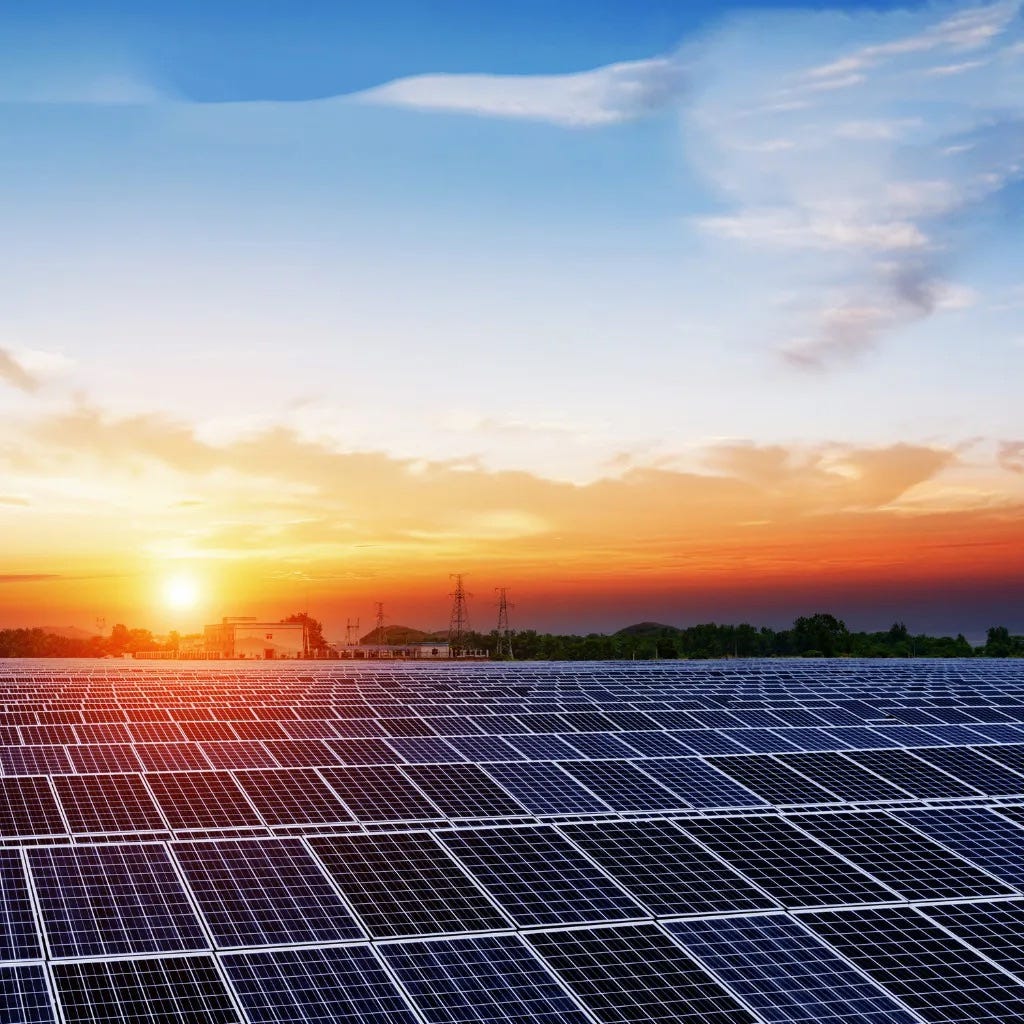The Problem of Scale
And cognitive dissonance among romanticizing elites
Since I’m not an energy or climate expert, I was looking around to find a good newsletter or source on the issues, unbiased, no predetermined solution (i.e. agenda), that would break it down for me. I simply wanted to understand emerging technologies better, without catastrophism, without romanticism, without undue taking of political sides.
The romanticism part may be the biggest ask.
Romantic Ideals vs Hard Realities
You see, there is a problem of scale. It’s a hard reality that 8 billion people live on the planet, and they all need energy. Is it physically possible to provide for even the most basic energy needs for all of them? Using renewable energy technologies? Without covering the planet in solar panels or wind farms? With a circular design in place to source sufficient rare metals for batteries (given the disaster of most mines) and to repair or recycle broken and used-up components? Within the reach of all economies?
What of the deep contradiction between realizing a romantic ideal, eliminating dirty and climate-dangerous fuels — using the right kind of energy — and the hard reality? I agree! Renewable energy is intrinsically the right kind energy to use. The sun already powers the planet. Why not let it directly power human activities? Wind and tides, the power of moving water, have been used for millennia to provide clean energy. But there are these stubborn tradeoffs. To think that you can power an 8 billion person world and that you can eliminate fossil fuels (as of yesterday) involves one in incredible cognitive dissonance.
Courageously facing the tradeoffs is what people at places like the Breakthrough Institute are trying to do. Or Vaclav Smil on power density. It’s the same dilemma portrayed for the reader in Charles Mann’s book The Wizard and the Prophet regarding how to feed the world. Renewable energy as romantically conceived, even as rapidly being implemented in our current rush to transition, is similar to the push for regenerative agriculture. Much as we love the concepts — I love them! — and we think they are intrinsically the right way to do things — they are! — there is this nagging, stubborn, hard reality.
Let me make it graphic for you. We easily protest how the Palestinians are being treated — how they’ve been treated for decades; it’s not just the current war. If we went all-in with romantically ideal, and intrinsically right, renewable energy and regenerative food options planet-wide, what if that would mean half or two thirds of the planet would turn into Palestine!
While the other half or third continue to live comfortably.
I’m not great with numbers and data. Maybe, maybe, my worries are baseless. I do think we need to see the math with eyes wide open. There is an undeniable problem of scale.
Safety & Comfort
People used to talk about “first world problems,” like having a meltdown when your smartphone goes on the fritz, or when your car breaks down on the way to work. This kind of struggle is so far removed from the most basic everyday life survival issues faced by a majority of the world’s people — not to mention the destruction of whole planetary ecosystems, landscapes, waterways, coral reefs and fisheries, plant and animal species (whole taxa), and so on. Every time we in the “first world” experience our unique kinds of stress, we have to remember that we live under conditions of enormous elite privilege.
The woke movement gets this exactly right. We must recognize our privilege. The New Right is equally correct to condemn the unthinking elite mindset of well-educated, well-trained, well-paid — and non-elected — giant government bureaucracies that (self-)righteously wield coercive power. Both are right.
Besides the problem of scale, then, the other hard reality we have to cope with is that only privileged elites are safe enough to afford the romanticized cognitive dissonance required to demand right solutions in the face of precisely the hard physical and population realities caused by problems of scale.
It is utterly strange that the most vocal critics of privilege are themselves the most privileged: materially comfortable but psychologically uncomfortable, safe themselves but angry and fearful on behalf of the oppressed. Truly poor and oppressed people do not have the bandwidth or resources or safety necessary to be vocal, much less woke, much less woke to their own privilege.
The truly poor are ecstatic to have basic material security, ideally without destroying the environment in which they live — since mobility is not an option for them (migration, immigration…). The poor can’t move away from locations of ecological disaster. Geography matters.
I’d love to send every privileged person, even every “poor” person in this country (the US), to Africa for a year… or to Bangladesh.
Feasible Justice
It’s not that we should drop our standards completely to the lowest possible baseline: feed and power the world, trash the planet. Ideals, even romanticized ones, are entirely necessary to have — as long as the cognitive dissonance they generate is recognized and accepted, not rationalized away.
The real project is feasible justice. What’s the most Just Anthropocene we might actually feasibly attain? Not: what is the most comfortable (psychologically) to the outraged woke and (their) bureaucratized elites, or to their equally outraged, equally privileged, reactionary opponents?
What’s the most Just Anthropocene we might actually feasibly attain?
I might even be prepared to be quite utilitarian about it, given some basic bottom line rights put securely in place, and given some real care put toward keeping human activity as free as possible once new rules of the game are set.


